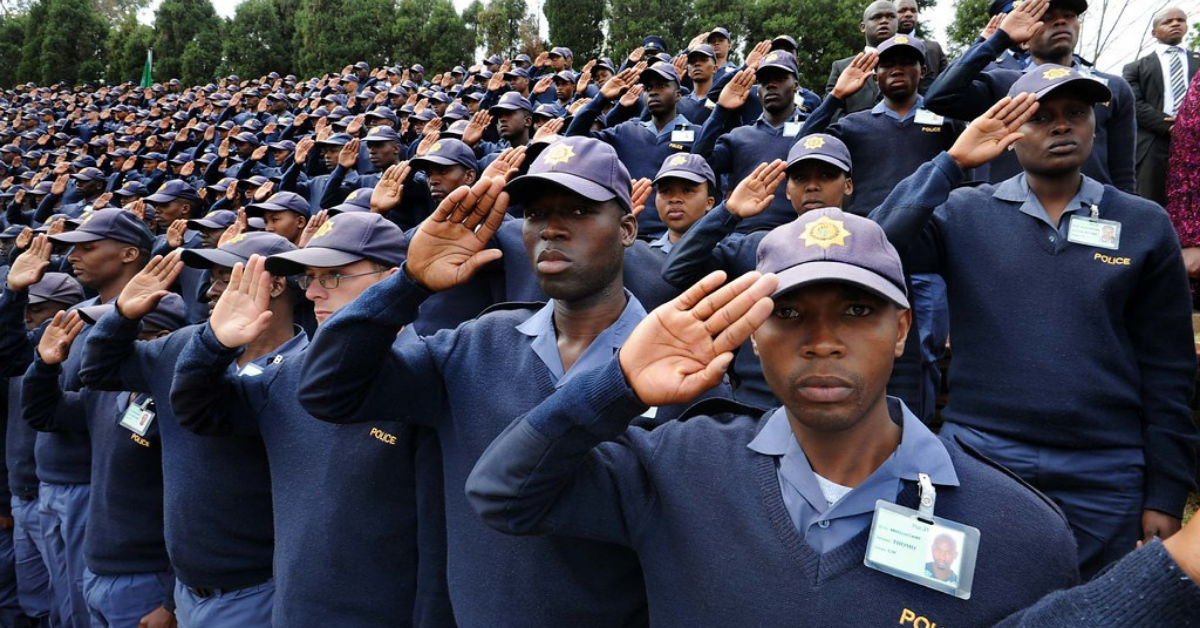As tense protests against the killing of George Floyd erupted in the United States, the African Union (AU) issued a statement condemning police actions that led to the Minnesota-native’s death. Police brutality is a key issue within Africa. Yet the AU appear to have no words when it comes to overzealous law enforcement within its purview.
Despite the coronavirus outbreak limiting the movement of many citizens, policing is being put above public health, with increasing reports of violent confrontations across the continent.
Kenya and Nigeria’s first month of state-enforced lockdown saw more people killed by the police for alleged non-compliance than by the virus itself. These figures include a thirteen-year-old boy, fatally shot on his balcony. In Uganda, a street food seller was burned with hot oil by security forces for breaching lockdown restrictions. For many across the continent, fears of confrontation with law enforcement are far greater than concerns about coronavirus.
“When faced with the option of arresting, interrogating and trying suspects, in too many cases the preferred choice has been to kill.”
South African Collins Khosa was beaten to death by security forces in his Gauteng home after small quantities of beer were found on his property, in violation of South Africa’s temporary alcohol ban. Although the security officers involved in this case have been suspended pending investigation, many attacks go without scrutiny.
It is difficult to forget the grisly video circulated online of a Kenyan policeman publicly executing suspected teenage criminals. The notorious officer involved faced no charges for these killings. A further video, also in Kenya, appeared online showing a police officer mercilessly killing two men in his custody.
This appears to be a pattern of behaviour by law enforcement across the continent. When faced with the option of arresting, interrogating and trying suspects, in too many cases the preferred choice has been to kill.
“most victims of extrajudicial killings in Kenya are Muslim”
The calibre of security officers has also been called into question. For instance, Uganda recently lowered its qualification requirements for police recruits. This is cause for concern. All security personnel should meet strict emotional intelligence and academic qualification standards. Understanding of the law, empathy and good social skills are key attributes of effective law enforcement.
Discrimination also remains a significant problem. For instance, most victims of extrajudicial killings in Kenya are Muslim. Classism and tribalism are also factors in the distribution of punishment. The AU has been quick to express concern at discriminatory practises taking place thousands of miles away. The silence at the countless killings on its doorstep is deafening.
The union has previously struggled with ensuring compliance with its directives. However, the AU is capable of taking action against belligerent states, as demonstrated by their action in Sudan. AU intervention culminated in Sudan’s suspension from the bloc, followed by AU-managed mediation between civilian and military leaders.
Of course, there is no singular way to overcome the troubles of an entire continent. What worked for the AU in Sudan did not work in South Sudan, Cameroon or the Sahel; with the AU being largely a bystander to conflicts in these regions. Although police brutality is an Africa-wide issue, it is a large continent with a number of different needs. In some post-conflict areas, severe mistrust and lack of confidence in security forces remain, which creates a volatile policing environment. It can be difficult to effect change, particularly when leaders are not committed to reform efforts. However, it is important that the AU does not turn away from the issues at its door.
The AU should be a louder advocate for reform and make efforts to work individually with states to encourage training and the establishment of systems that do not enable cycles of impunity. With its 2020 “Silencing the Guns” initiative, the AU appears to be showing determination to end conflict throughout the continent. Whether this will lead to action that brings rampant police violence to an end, remains to be seen.
Image by Gov of South Africa

